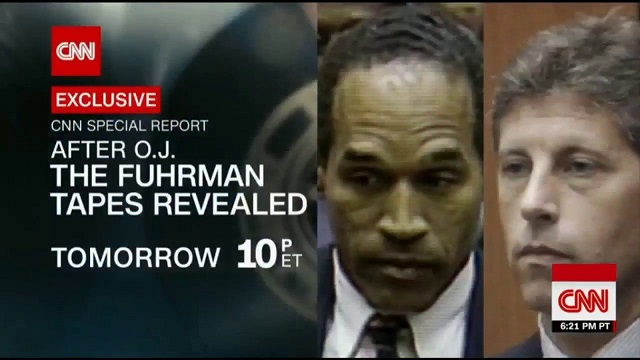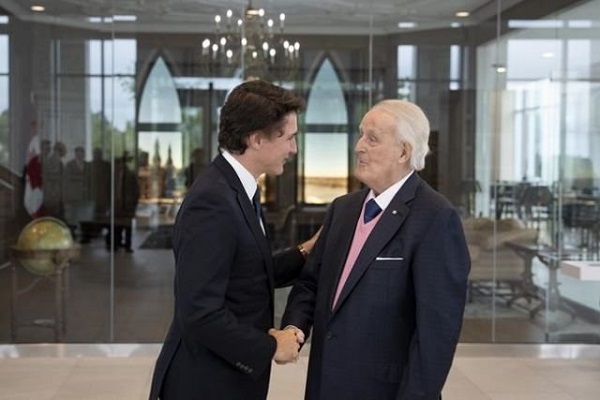Opinion
Could You Be Abusing Someone on Behalf of a Narcissist?

Today is World Narcissistic Abuse Awareness Day. Yes, believe it or not, it is a real thing. And it hurts.
We are all good people, right? At least, deep down, I hope we believe that; I mean, what person would intentionally, consciously, go out of their way to hurt and destroy another human being?
We probably have all been in contact with a narcissist at some point in our life. Maybe a boss. A friend. A neighbor. Or like me, even a member of your own immediate family.
Narcissists are very smart and calculating. They have had to be; they have been doing this for a very long time. They are self-absorbed, controlling, intolerant to others and their needs, and insistent that others see them as they wish to be seen, even though their front is a façade. “Victimized narcissists” can say hurtful things, but if you dare say something back to defend yourself, you are the enemy and considered abusive. There is no sense in debating with a narcissist; they will shift the blame at all costs. They will never see things through your eyes; they are incapable of reflection or feeling empathy. For this reason, sadly, they don’t have the conscious insight that we do to know that they exhibit this behavior.
Narcissists will suck the life out of you and leave you struggling to breathe. Narcissists don’t care that they pit one family member against another, even sibling against sibling if the narcissist happens to be a parent. Yes, the most excruciating pain is the reality that moms and dads can also be narcissists, leaving their children sometimes hating each other. And the one that dares to speak out to this abuse is left feeling defeated, battered, and bruised by the people they love most in this world even though the wounds are invisible to the naked eye (which is another reason why innocent people get caught in the trap of defending the narc).
And if the relationship becomes so intolerable with a narc that you are forced to make a painful decision of quitting your job, moving, ending a friendship, getting a divorce, or even going low or no contact with one or both of the people who brought you into this world, you become public enemy number one; the narc will attempt to destroy you and your reputation at all costs.
“Narcissist’s will DESTROY your life and erode your self-esteem. They do it with such PERSUASION that you are left feeling like YOU are the one letting them down.”
A narcissist’s public persona is very important to them, which is why they don’t publicly attack you—that would make them look bad. Instead, they carefully choose people in their circle to be their puppets. The narc delivers believable-sounding lies to sympathetic ears, ones that can be easily manipulated. Of course, very decent, loving, caring individuals can be caught in the trap of the narcissist and innocently become what is called “flying monkeys.”
A Flying Monkey? Up until a few months ago, I had never even heard the term. But I felt attacked from all directions and so on my quest to understand and survive this abuse I found this in Wikipedia and finally it all made perfect sense. The complicated pieces all came together in my mind: “Flying monkeys is a phrase used in popular psychology mainly in the context of narcissistic abuse. They are people who act on behalf of a narcissist to a third party, usually for an abusive purpose. Flying monkeys are distinct from enablers…. Enablers just allow or cover for the narcissist’s (abuser’s) own bad behavior.”
This is a phrase made popular by the movie The Wizard of Oz—the Wicked Witch sent her flying monkeys after Dorothy and her friends. In most cases, it is a humorous way of saying “Don’t make me come after you.” But there is nothing humorous about being hated and harassed by a flying monkey on its mission to destroy an innocent person. It is unfair, cruel and causes more pain to someone that is already struggling.
So, beware.
You may be a flying monkey if:
You find yourself believing gossip, even though the facts don’t add up.
You are an adult, yet you take sides, instead of staying impartial.
You are mad, stop speaking to someone and possibly hate someone else who has done nothing to you at all.
You accept someone’s version of the truth although you have no first-hand knowledge of the story.
You believe that the one you are defending is the only one deserving of sympathy.
You are overly involved, feeling the need to defend at all costs.
You are attacking someone else over something that quite frankly is none of your business.
And what should you do if you are on the receiving end of this hatred and smear campaign either from a narcissist or their flying monkey?
It is easier said than done sometimes, but keep calm and do not engage. DON’T ENGAGE. The narc is looking for you to react. It gives them fuel. Strength. Power. And they hate nothing more than the silent treatment, as they are then not getting their narcissistic supply.
Breathe. Ignore it. Read books and articles on narcissism. See a therapist. Write. Cry (it does make you feel better). Cry some more if you have to. Heal. Keep breathing.
Live a beautiful, healthy, productive, and happy life and don’t look back. Narcissists hate that and it does make them angrier. But don’t do it out of spite; do it because you are entitled to that. You are. And never let anyone make you feel guilty or beaten down or ashamed that you choose to do what is best for your life.
We are all responsible for our choices and behaviors and the consequences. Knowledge is a gift and you can always change. Say sorry. Forgive. So, if you believe that you have unintentionally been used by a narcissist as their flying monkey, what you do with that knowledge is up to you.
But know that, moving forward, what you do now IS intentional and conscious.
Jodee Prouse is a Sister. Wife. Mom. Friend. And outspoken advocate to help empower ACOA’s through their journey of life; trauma, truth, addiction & breaking free from family chaos to live YOUR best life. She is the author of the powerful memoir, The Sun is Gone: A Sister Lost in Secrets, Shame, and Addiction and How I Broke Free. To learn more visit www.jodeeprouse.com
National
Canada’s Governor General slammed for hosting partisan event promoting Trudeau’s ‘hate speech’ bill

From LifeSiteNews
Mary Simon, Canada’s supposed non-partisan head of state, appeared to be supporting a Liberal government bill that will further regulate the internet.
Governor General Mary Simon, who serves as Canada’s official non-partisan head of state and representative of King Charles III, has taken heat for hosting a conference supporting a new federal government bill that could lead to large fines or jail time for vaguely defined online “hate speech” infractions.
On April 11, Simon hosted an event titled “The Governor General’s Symposium: Building a Safe and Respectful Digital World” at her Rideau Hall residence, with the goal to “bring together individuals who experience online violence and experts from across the country to share their experiences, explore solutions, and create allyship and networks of resilience.”
The guest list for those invited included those supportive of Liberal Minster Attorney General Arif Virani’s Bill C-63, or Online Harms Act. Some of the invited guests included former Global News reporter Rachel Gilmore, LGBTQ activist Fae Johnstone, Chief Public Health Officer Dr. Theresa Tam, and Ottawa school trustee Nili Kaplan-Myrth. No members of the Conservative Party or independent journalists were invited.
After news spread of the event, which Simon herself posted about on X, many took to social media to voice concerns over Simon hosting the event.
“Can you imagine the Queen having a seminar at Buckingham Palace to talk about a bill before the House of Commons in England? That would be outrageous. That’s what @GGCanada Mary Simon just did,” said political commentator Tom Korski on a CBC radio show.
Another X user @IMHeatherAmI wrote, “Trudeau has corrupted everything.GG Mary Simon is abusing her power by “promoting contentious Liberal bills that are trying to be passed in Parliament.”
Rideau Hall gave no comment that Canada’s supposed non-partisan head of state appeared to be supporting a Liberal government bill that will further regulate the internet.
“The Governor General is non-partisan and apolitical,” Rideau Hall said in a statement.
In comments sent to the media about apparent conflicts of interest, a spokesperson for Simon said that she will keep advocating for “digital respect.”
Conservative Party spokesman Sebastian Skamski observed that Simon should be “ashamed” for “politicizing and exploiting” the office of Governor General, which is supposed to be completely non-partisan.
The Online Harms Act was introduced in the House of Commons on February 26 by Virani and was immediately blasted by constitutional experts as troublesome.
Bill C-63 will modify existing laws, amending the Criminal Code as well as the Canadian Human Rights Act, in what the Liberals claim will target certain cases of internet content removal, notably those involving child sexual abuse and pornography.
However, the bill also seeks to police “hate” speech online with broad definitions, severe penalties, and dubious tactics.
Details of the new legislation to regulate the internet show the bill could lead to more people jailed for life for “hate crimes” or fined $50,000 and jailed for posts that the government defines as “hate speech” based on gender, race, or other categories.
The bill also calls for the creation of a digital safety commission, a digital safety ombudsperson, and a digital safety office.
The Justice Centre for Constitutional Freedoms (JCCF) has said Bill C-63 is “the most serious threat to free expression in Canada in generations. This terrible federal legislation, Bill C -63, would empower the Canadian Human Rights Commission to prosecute Canadians over non-criminal hate speech.”
JCCF president John Carpay recently hand-delivered a petition with 55,000-plus signatures to Canada’s Minister of Justice and all MPs.
Frontier Centre for Public Policy
The Smallwood solution
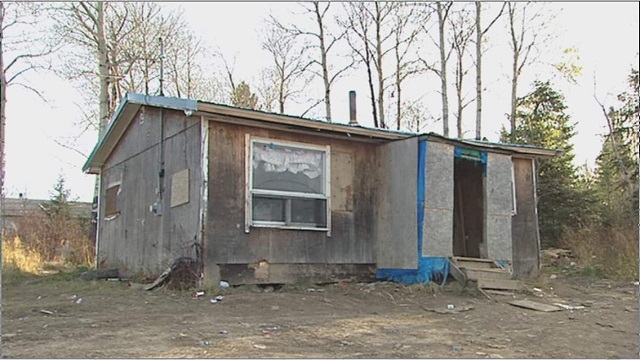
From the Frontier Centre for Public Policy
All Canadians deserve decent housing, and indigenous people have exactly the same legal right to house ownership, or home rental, as any other Canadian. That legal right is zero.
$875,000 for every indigenous man, woman and child living in a rural First Nations community. That is approximately what Canadian taxpayers will have to pay if a report commissioned by the Assembly of First Nations (AFN) is accepted. According to the report 349 billion dollars is needed to provide the housing and infrastructure required for the approximately 400,000 status Indians still living in Canada’s 635 or so First Nations communities. ($349,000,000,000 divided by 400,000 = ~$875,000).
St Theresa Point First Nation is typical of many of such communities. It is a remote First Nation community in northern Manitoba. CBC recently did a story about it. One person interviewed was Christina Wood, who lives in a deteriorating house with 23 family members. Most other people in the community live in similar squalor. Nobody in the community has purchased their own house, and all rely on the federal government to provide housing for them. Few people in the community have paid employment. Those that do have salaries that come in one way or another from the taxpayer.
But St. Theresa Point is a growing community in the sense that birth rates are high, and few people have the skills or motivation needed to be successfully employed in Winnipeg, or other job centres. Social pathologies, such as alcohol and other drug addictions are rampant in the community. Suicide rates are high.
St. Theresa Point is one of hundreds of such indigenous communities in Canada. This is not to say that all such First Nations communities are poor. In fact, some are wealthy. Those lucky enough to be located in or near Vancouver, for example, located next to oil and gas, or on a diamond mine do very well. Some, like Chief Clarence Louis’ Osoyoos community have successfully taken advantage of geography and opportunity and created successful places where employed residents live rich lives.
Unfortunately, most are not like that. They look a lot more like St. Theresa Point. And the AFN now says that 350 billion dollars are needed to keep those communities going.
Meanwhile, all of Canada is in the grip of a serious housing crisis. There are many causes for this, including the massive increase in new immigrants, foreign students and asylum seekers, all of whom have to live somewhere. There are various proposals being considered to respond to this problem. None of those plans come anywhere near to suggesting that $875,000 of public funds should be spent on every Canadian man, woman or child who needs housing. The public treasury would not sustain such an assault.
All Canadians deserve decent housing, and indigenous people have exactly the same legal right to house ownership, or home rental, as any other Canadian. That legal right is zero. Our constitution does not give Canadians – indigenous or non-indigenous- any legal right to publicly funded home ownership, or any right to publicly funded rental property. And no treaty even mentions housing. In all cases it is assumed that Canadians – indigenous and non-indigenous – will provide for themselves. This is the brutal reality. We are on our own when it comes to housing. There are government programs that assist low income people to buy or rent homes, but they are quite limited, and depend on a person qualifying in various ways.
But indigenous people do not have any preferred right to housing. The chiefs and treaty commissioners who signed the treaties expected indigenous people to provide for their own housing in exactly the same way that all other Canadians were expected to provide for their own housing. In fact, the treaty makers, chiefs and treaty commissioners – assumed that indigenous people would support themselves just like every other Canadian. There was no such thing as welfare then.
Our leaders today face difficult decisions about how to spend limited public funds to try and help struggling Canadians find adequate housing in which to raise their families, and get to and from their places of employment. Indigenous Canadians deserve exactly as much help in this regard as everyone else. Finding sensible, affordable ways to do this is vitally important if Canada is to thrive.
And one of hundreds of these difficult and expensive housing decisions our leaders must deal with now is how to respond to this new demand for 350 billion dollars – a demand that would result in indigenous Canadians receiving hundreds of times more housing help than other Canadians.
Our leaders know that authorising massive spending like that in uneconomic communities is completely unfair to other Canadians – for one thing doing so means that there would be no money left for urban housing assistance. They also know that pouring massive amounts of money into uneconomic, dysfunctional communities like St. Theresa’s Point – the “unguarded concentration camps” Farley Mowat described long ago- only keeps generations of young indigenous people locked in hopeless dependency.
In short, they know that the 350 billion dollar demand makes no sense.
Our leaders know that, but they won’t say that. In fact it is not hard to predict how politicians will respond to the 350 billion dollar demand. None of their responses will look even remotely like what I have written above. Instead, they will say soothing things, while pushing the enormous problem down the road. Eventually, when forced by circumstances to actually make spending decisions they will provide stopgap “bandage” funding. And perhaps come up with pretend “loan guarantee” schemes – loans they know will never be repaid. Massive loan defaults in the future will be an enormous problem for our children and grandchildren. But today’s leaders will be gone by then.
So, in a decade or so communities, like St. Theresa Point, will still be there. Any new housing that has been built will already be deteriorating and inadequate. The communities will remain dependent. The young people will be trapped in hopeless dependency.
And the chiefs will be making new money demands.
At some point this country will have to confront the reality that most of Canada’s First Nations reserves, particularly the remote ones, are not sustainable. Better plans to educate and provide job skills to the younger generations in those communities, and assist them to move to job centres, will have to be found. Continuing to pretend that this massive problem will sort itself out by passing UNDRIP legislation, or pretending that those depressed communities are “nations” is only delaying the inevitable.
When Joey Smallwood told the Newfoundland fishermen, who had lived in their outports for generations, that they must move for their own good, there was much pain. But the communities could no longer support themselves, and it had to be done. Entire communities moved. It worked out.
The northern First Nations communities are no different. The ancestors of the residents of those communities supported themselves by fishing and hunting. It was an honourable life. But it is gone. The young people there now will have to move, build new lives, and become self-supporting like their ancestors.
Brian Giesbrecht, retired judge, is a Senior Fellow at the Frontier Centre for Public Policy
-
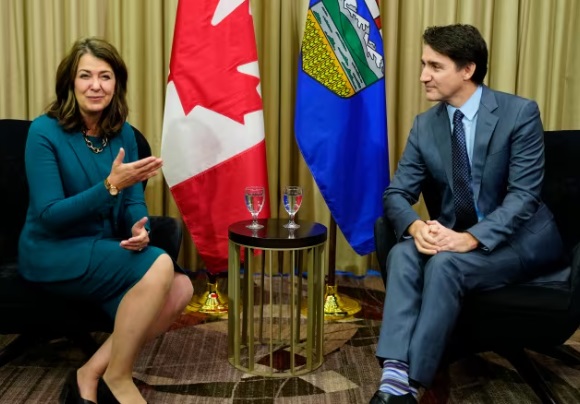
 Alberta2 days ago
Alberta2 days agoFree Alberta Strategy backing Smith’s Provincial Priorities Act
-
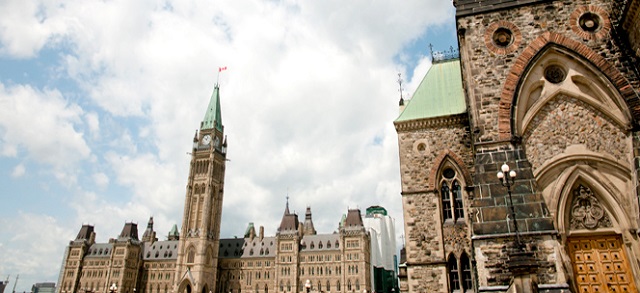
 Economy1 day ago
Economy1 day agoMassive deficits send debt interest charges soaring
-
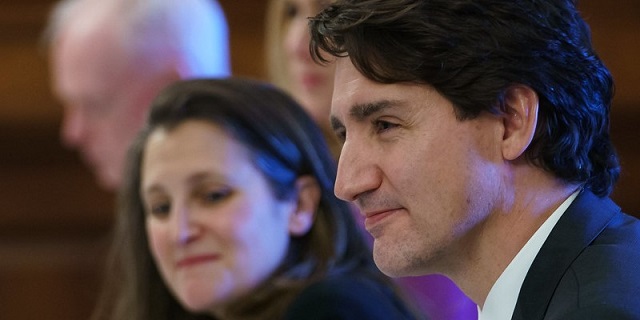
 Economy1 day ago
Economy1 day agoFederal budget’s scale of spending and debt reveal a government lacking self-control
-
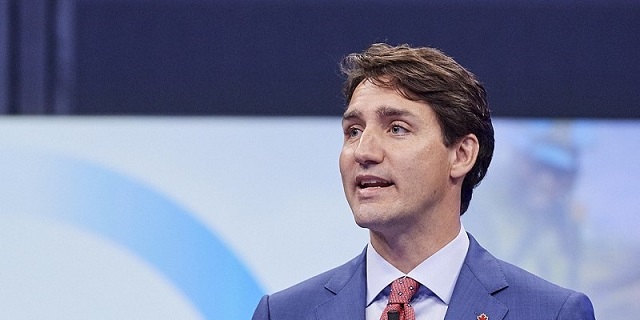
 Business17 hours ago
Business17 hours agoFederal budget fails to ‘break the glass’ on Canada’s economic growth crisis
-

 Automotive2 days ago
Automotive2 days agoBiden’s Kill Switch: The Growing Threat of Government Control of Your Car
-
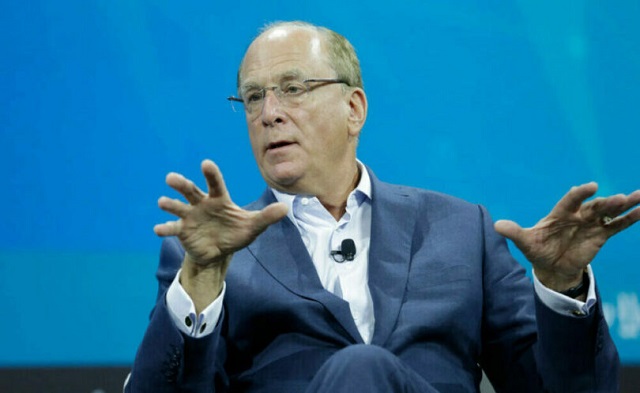
 Business2 days ago
Business2 days agoUS firms like BlackRock are dropping their climate obsession while Europe ramps theirs up
-
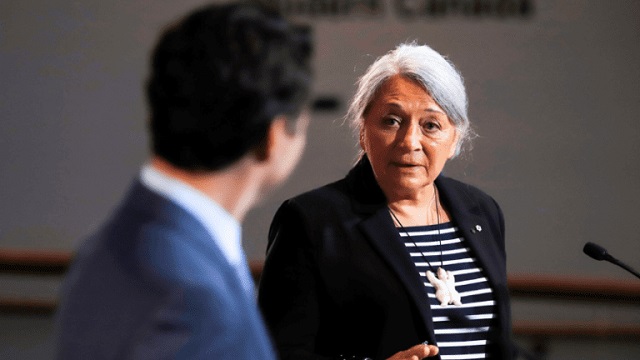
 MacDonald Laurier Institute2 days ago
MacDonald Laurier Institute2 days agoThe Governor General deserves better, but we deserve impartiality
-

 Economy1 day ago
Economy1 day agoFederal budget: You can’t solve a productivity emergency with tax hikes

